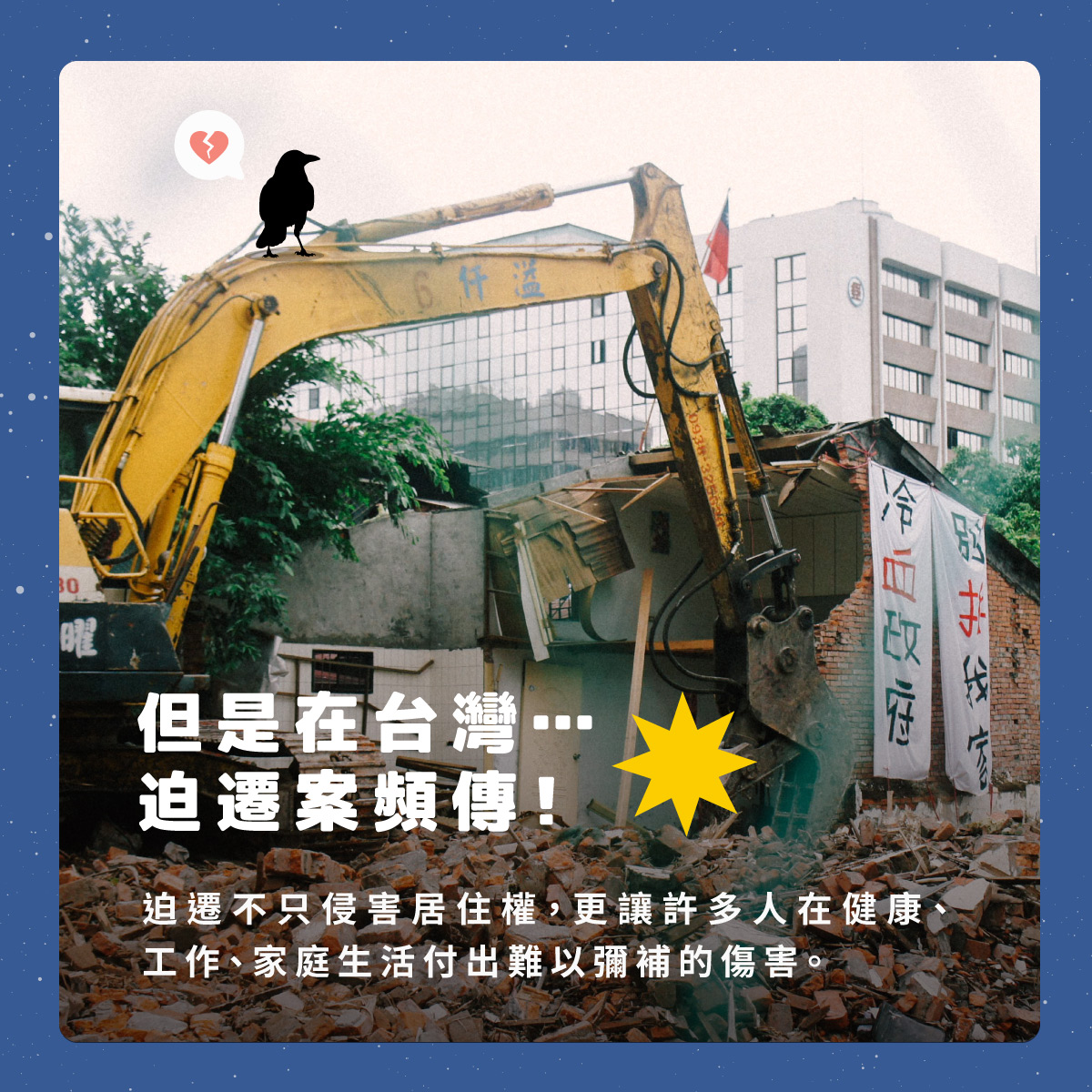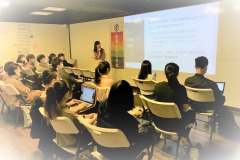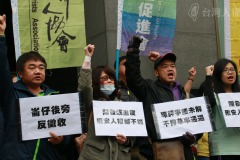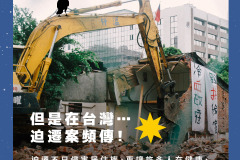➢World Habitat Day: Examining the Current State of Forced Evictions in Taiwan
➢#世界人居日:關注台灣迫遷現況
「 迫遷,嚴重侵害人權! 」
“The practice of forced eviction constitutes a gross violation of human rights, in particular of the right to adequate housing,” (UN Commission on Human Rights, Resolution 1993/7).
Forced evictions not only infringe on the right of residency, but also threaten the health, occupation, and family of the persons involved. In communities facing the threat of forced evictions, local social ties are frequently torn apart because of overreaching development plans. Forced evictions also violate citizen and political rights, such as the right to life, the right to security of the person, the right to non-interference with privacy, family and home and the right to the peaceful enjoyment of possessions. These are serious violations of basic human rights. Under the requirements of international human rights covenants, the state is obliged to prohibit forced evictions.
迫遷,不只侵害居住權,也威脅著當事人的健康、工作與家庭,在面臨迫遷威脅的社區,更常因為錯誤的開發方案,而撕裂在地的社會關係;迫遷也違反 #公民和政治權利,例如生命權、人身安全權、私生活家庭和住宅不受干涉權以及和平享用財產權等,是對基本人權嚴重的侵害,在國際人權公約的要求下,國家有義務禁止迫遷。
▍Zone expropriation is not cooperative development, and resettlement plans cannot justify forced eviction
▍區段徵收不是合作開發 安置計畫不能正當化迫遷
In Taiwan, the tools employed for “integrated land development,” such as “zone expropriation,” urban rezoning, and urban renewal, are the main drivers of systematically forced evictions. Zone expropriation is a policy promulgated by the Ministry of the Interior that coercively purchases land in a section or district for replanning and redevelopment, allowing landowners to retake unused land after construction is complete. Since 2018, the total land area of zone expropriation cases approved by the Land Expropriation Review Board of the Ministry of the Interior exceeds 2,100 hectares. If including zone expropriation cases in the Northern Taiwan Plan, such as the Taipei Shezidao case, the Taoyuan Metro Green Line land development case, the Zhudong Erchongpu and Sanchongpu case, and the Taiwan Knowledge-based Economy Park, within a few years, the requisitioned area will be close to 3400 hectares (an area larger than two Green Island’s), affecting more than 100,000 people.
在台灣,土地整體開發手段,例如區段徵收、市地重劃、都市更新是系統性製造迫遷戶的主要推手。以區段徵收為例,2018年至今,內政部土地徵收審議小組通過的區段徵收案件面積加總超過2100公頃, 若計入北台灣計畫中的其他區段徵收案,例如台北社子島、桃園綠捷土開、竹東二三重埔、台知園區等,幾年之內徵收面積將接近3400公頃( #比2個綠島還大),影響超過10萬人。
The government claims that zone expropriation is cooperative development, but the essence of zone expropriation is compulsory acquisition. Nowhere throughout the administrative process of zone expropriation is the consent of the parties involved taken into account. Expropriation that residents cannot refuse is the antithesis of cooperative development. Even if the government proposes a resettlement plan, according to the norms of the two UN human rights conventions to protect the right of residence, resettlement itself cannot justify the forced eviction but can only be a last resort compensation measure for land reclamation and building demolition taken under the “most exceptional situations.” If the case itself lacks legitimacy, violates the principle of non-proportionality, lacks evaluation of alternative plans (plans proposed by local residents should be especially taken into consideration), and lack of negotiations in good faith with the affected persons (regardless of whether they hold the property rights to concerned property), neglecting all the above actions and directly pushing through a “relocation plan” is an utter misunderstanding of the protection of basic human rights afforded by the UN dual human rights covenants.
政府宣稱區段徵收是合作開發,然而區段徵收本質是強制取得,行政流程的推進無涉民眾是否同意;居民無法拒絕的徵收「#絕非合作開發」。而即便設有安置計畫,從兩公約居住權保障的規範檢視,#安置本身不能正當化迫遷,而只能是「最例外狀況」下不得已的拆遷補償措施。如果自始案件就缺乏正當性、不合比例原則、沒有評估替代方案(特別應考量由在地居民實質參與所提出的方案)、未與受影響的人(無論其是否持有產權)真誠磋商,跳過上述一切程序直接端出「安置方案」,更是完全誤解兩公約對於基本人權的保障!
▍強化非正規住居的保有權
▍Strengthen the rights to tenure of informal settlements
In addition to forced evictions resulting from land development, informal settlements also require more attention. In Taiwan, informal settlements on public land mostly reflect the country’s historical lack of effective housing policies, where people have tried to solve the predicament of having nowhere to live by building houses on their own. In development programs, the existing system only considers people with property rights, and those without property rights often have no choice but to pack their things and leave. In addition, residents who only use the land but have no formal property rights to the land have seen their basic rights almost completely trampled. Informal residents are more likely to be taken to court by government and other private individuals, hounded by lawsuits, and face huge compensation claims and forced demolition of their homes. Avoiding the forced demolition of informal settlements is an important part of safeguarding the rights to housing.
在土地開發導致的迫遷外,非正規住居也需要我們更多的關注。在台灣,公有土地的非正規住
居多半反應國家缺乏有效住宅政策,民眾自力造屋努力解決無處可住的窘境。在開發案中,既有制度幾乎僅考量有產權者,無產權者往往只能捲鋪蓋走人;此外,僅使用土地但無土地產權的居民,他們的的基本權利幾乎被徹底踐踏,非正規住居的住戶更可能落入被政府部門、其他私人吿進法院飽受訴訟折磨,並面臨鉅額求償與房屋被強制拆除的後果。避免非正規住居被強迫拆遷,亦是維護居住權的重要一環。
Please continue to pay attention to the right to housing with the Taiwan Association for Human Rights. To protect individual homes is to protect the dignified existence of every member of society.
請與台權會繼續關注居住權!守護個別的「家」,就是守護每個社會成員能有尊嚴的存在。

*The photo was taken in March 2013 when the Ministry of Justice demolished the Huaguang Community.
*照片拍攝於2013年3月法務部強拆華光社區 。
*英文翻譯:鄭秉信
--
|居住權募款專案:https://neti.cc/zEdPW88




